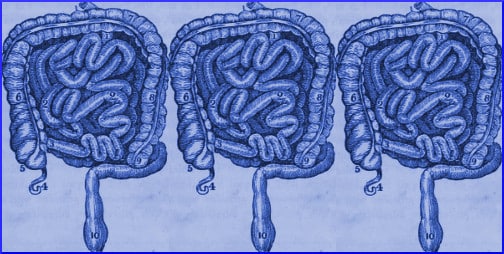
Childhood Obesity News previously quoted Dr. Franklin Tsai, who wrote:
Metagenomic studies demonstrated that certain mixes of gut microbiota may protect or predispose the host to obesity. Furthermore, microbiota transplantation studies in germ-free murine models showed that the efficient energy extraction traits of obese-type gut flora are transmissible.
Dr. Tsai and many other researchers paved the way for one of the craziest medical advances ever, the transplantation of fecal matter from one host to another.
It has always been unavoidably obvious that family members tend to resemble one other. This has been attributed to genetics (or in the old days, “blood”) and to socialization within the nuclear family, where conformity to norms is of prime importance.
At the very least, genetically related humans have microbiomes “more similar than those of people who are not related.” Also, whether they cohabitate or not, relatives “tend to share more of their gut (fecal) microbes than unrelated individuals.”
A multi-author paper titled “Cohabiting family members share microbiota with one another and with their dogs” goes on to state:
Moreover, the communities of microorganisms found in the intestines of non-related adults living in the same household are more similar than those of unrelated adults living in different households.
In other words, whatever the gut flora decide to do, it will affect not only the host but other people too, regardless of their shared or separate household status or familial relationship. The imposing Argonne National Laboratory carried out this study:
The Home Microbiome Project followed seven families, which included eighteen people, three dogs and one cat, over the course of six weeks. The participants in the study swabbed their hands, feet and noses daily to collect a sample of the microbial populations living in and on them. They also sampled surfaces in the house, including doorknobs, light switches, floors and countertops.
The study showed that married couples and their young children tend to share most of their invisible interior communities. In a household where three unrelated adults lived, the romantically involved couple shared a lot more microbial species with each other than with the third inhabitant.
People who are related and/or live together share large swaths of their microbial populations. This resonates with the mystical belief that when married, two people become one. At the same time, the influence of the microbiome saps the potency of the ancient superstitions created around “blood” as the fundamental tie between people. It begins to look as if the most basic signifier of kinship might be our shared bugs.
Your responses and feedback are welcome!
Source: “Cohabiting family members share microbiota with one another and with their dogs,” NIH.gov, 04/16/13
Source: “Home is Where the Microbes Are,” ANL.gov, 08/28/14
Photo credit: Internet Archive Book Images via Visualhunt/No known copyright restrictions

 FAQs and Media Requests:
FAQs and Media Requests: 











